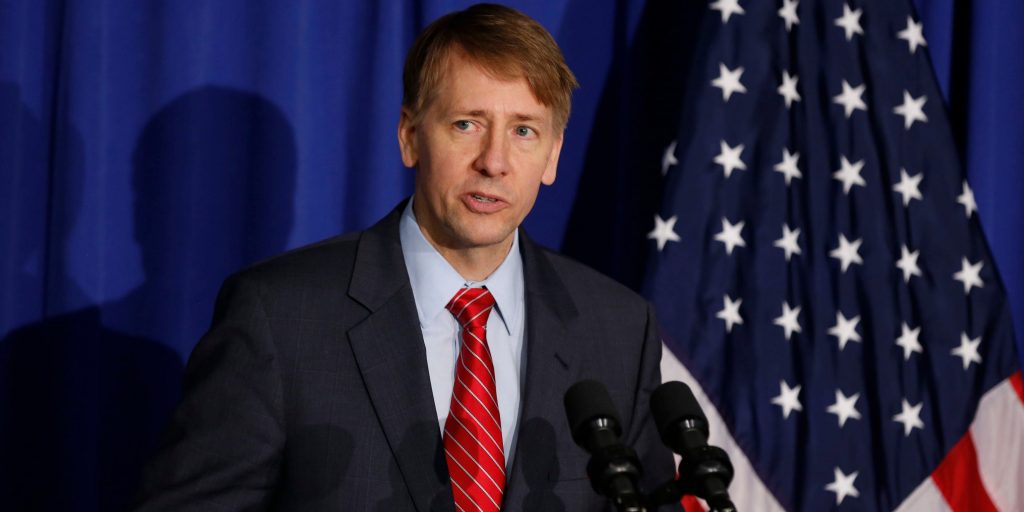
REUTERS/Larry Downing
- Richard Cordray, head of the FSA, issued guidance to increase oversight of student loan servicers.
- It would rescind a Trump-era policy that restricted states' access to data from loan servicers.
- Cordray's past work has largely centered on holding loan servicers accountable to ensure borrowers aren't defrauded.
- See more stories on Insider's business page.
Richard Cordray, the head the Education Department's Office of Federal Student Aid (FSA), is remaining committed to helping student loan borrowers through new issued guidance that would enhance oversight of student loan servicers.
On Friday, Cordray – former head of the Consumer Financial Protection Bureau (CFPB) and an ally of Sen. Elizabeth Warren – issued guidance that would expedite the process for states to receive data from student loan servicers, increasing oversight to protect student loan borrowers from potential violations of the law.
Cordray wrote in a blog post that, as former head of the CFPB, he "saw the importance of state regulation and oversight to identify problems and deliver relief when companies take advantage of people." He also said the new guidance will make the information FSA holds more accessible to regulators.
"States and regulators need information when they think a loan servicing company might be violating a law or regulation," Cordray wrote. "To know for sure, they need to look at the companies' policies and procedures, their handbooks, complaints made by customers, and anything else that shows how the company operates. Getting information from us helps state officials better enforce their laws that protect [borrowers]."
In 2017, under President Donald Trump, the FSA published a memo that told loan servicers that if states came to them for information, they had to send a request to the FSA first before releasing anything. But Cordray wrote that the FSA usually rejected the requests, forcing states to file lawsuits that dragged out the process.
Cordray is rescinding that memo and replacing it with a new one that would make it easier for the FSA to work with states to quickly review requests and approve them whenever possible.
Insider reported last month that Cordray's appointment could be game-changing for the student debt system given his former role at CFPB, which Warren - a leading advocate for student-debt cancelation - helped create.
During her time in the Senate, Warren worked with Cordray's bureau to conduct investigations into predatory lending practices, and at the CFPB during the Obama years, Cordray made oversight of student loan servicers his priority.
The agency has returned more than $750 million to student loan borrowers since 2011 over debt collection complaints. Then, in early 2017, the bureau sued Navient - the largest student loan servicer in the US - in a lawsuit that is still ongoing, arguing that Navient misled students into taking on loans they cannot pay off.
And while Warren is pushing for Biden to cancel $50,000 in student debt per borrower, Cordray has not yet commented on doing so. But he said after his appointment to FSA that he was looking forward to creating "more pathways for students to graduate and get ahead, not be burdened by insurmountable debt."
Cordray's new guidance was not welcomed by some Republican lawmakers, however. Virginia Foxx, the top Republican on the House Education and Labor Committee, said in a statement it "bows to the whims of state-based Democrat politicians who are more interested in putting companies out of business than helping struggling student loan borrowers."
But Cordray remains committed to reforming the federal student aid system to work for borrowers and hold loan servicers accountable.
"This is only a start," he wrote. "As we move ahead, FSA has more work to do to establish strong relationships with state officials. We believe federal and state officials should be partners rather than adversaries."
He concluded: "By working together more productively, we can build a stronger system of federal student aid to help people all over this country gain easier access to the American dream."
